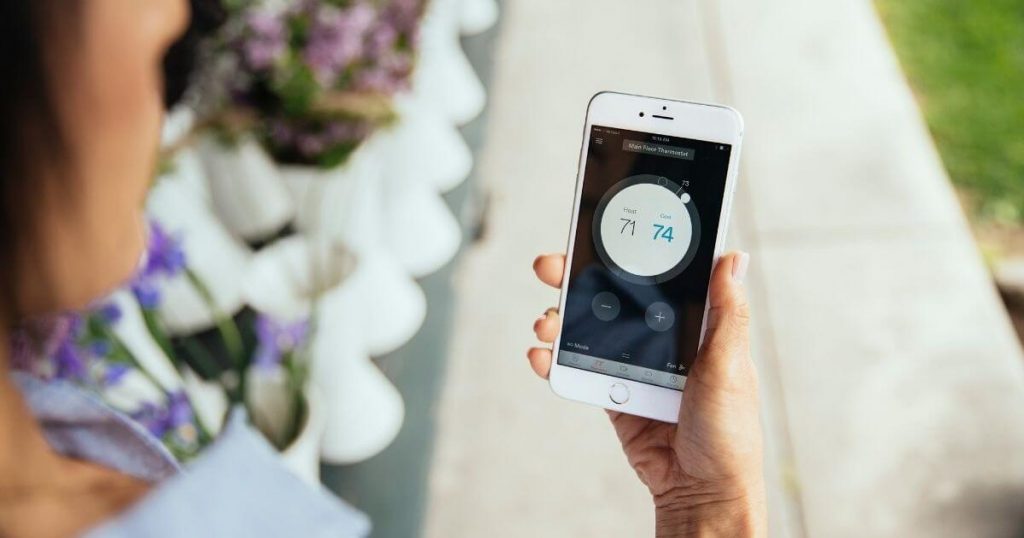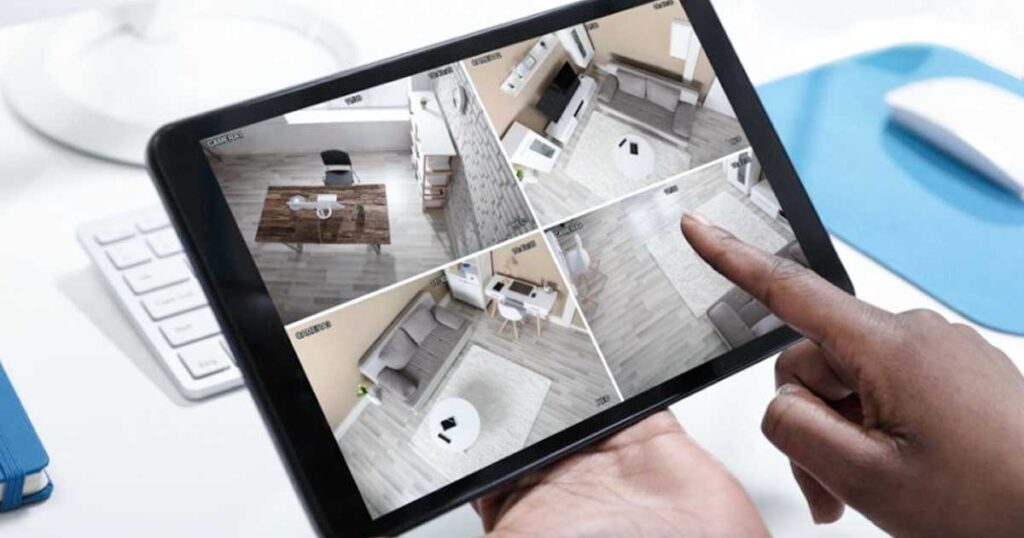Maybe you've heard about VPNs from a TikToker, Instagrammer, or YouTuber, but you're not sure what they are. We're here to break VPNs down for you in plain English: what they do, why you might need one, and how to choose a VPN service.
What Is a VPN and What Does It Do?
For over 11 years, SafeWise experts have conducted independent research and testing to write unbiased, human reviews (not robots). Learn more.
By signing up, you agree to our Terms and Conditions and Privacy Policy.
What is a VPN?
A virtual private network, or VPN, is a private internet connection—usually available via a paid service—that masks your presence online: your IP address, location, and browser history. This makes it harder for third-party organizations to collect information about your online life for advertising, hacking, and censorship purposes.
How a VPN works
There are two parts to every VPN:
- You install a VPN client on your computer or mobile device, which connects you directly to a VPN server. The server uses VPN tunneling to encrypt all data coming and going from your device's internet connection.
- The VPN server interacts with websites on your behalf, which helps keep the tracking software that websites use from seeing your true IP address and what's on your device.
Cookies are files that websites store in your browser history. They track your interactions over time for advertising and improve website loading times. A VPN's encrypted connection doesn't stop websites from leaving cookies, so you should disable or block them in your browser settings if you don't want to leave a trail.
Do I need a VPN?
While a VPN app won't make you completely invisible, it's a convenient way to close your curtains to snooping companies and surf the web in private. Unless you're aiming for maximum online privacy, you probably don't need a VPN tunnel all the time. Still, VPNs are handy for accessing content, traveling, and using file-sharing sites.
Accessing content
A VPN user can change their location to a remote server instead of the local one their internet service provider (ISP) uses—like using a server from Australia instead of California. This is most useful for dealing with internet censorship if you live in a country with internet restrictions on news, social media, information, and chat apps.
Aside from bypassing government censors, the most popular reason to use a remote access VPN server is to bypass regional content restrictions on streaming services like Netflix and Disney+.
While VPN use isn't technically illegal when you stream, it's against the terms and conditions of your subscription service. Most streaming services work hard to identify and block international VPN servers—a server that works today isn't guaranteed to work forever.
Travel
VPNs are beneficial for keeping travelers safer on public Wi-Fi. It's surprisingly easy for hackers to lurk on open Wi-Fi networks—in hotels, airports, and restaurants—and sniff out any sensitive data floating around. Using a VPN on public Wi-Fi makes your info less vulnerable to identity theft. Plus, VPNs are great for secure remote access to your content at home from a different country.
Using a VPN is a great start, but it's also essential to do your homework and ensure the Wi-Fi you're using is safe. Here are some tips from our guide to staying safe on public Wi-Fi:
- Avoid using public Wi-Fi networks to access your banking records or other sensitive information.
- Virtually any website URL without "HTTPS" as a prefix is vulnerable to hacked data collection.
File sharing sites
You might appreciate a VPN connection for downloading large torrent files from file-sharing sites. While some torrent downloading is legal, it's more popular for online piracy. Many companies don't approve of the practice—potentially landing you on a watch list. Deploying VPN encryption before you download is an excellent way to fly under the radar.
What should I look for in a VPN?
Many VPN services try to lure you in with lots of servers and high encryption levels. These are important but part of every VPN, so it generally depends on how many server options you want. Instead, consider no-logging policies, kill switches, and internet speed when choosing a VPN service.
No-logging policy
Pay close attention to the fine print before signing up for VPN software. As your internet bodyguard, a VPN can access all your data, so it must protect your privacy through a strong no-logging policy.
The VPN provider shouldn't save any records related to your internet activity. A no-logging policy is also a promise from the VPN not to sell or provide your personal information to businesses or governments.
Kill switch
All connections experience hiccups from time to time, and a VPN client is no exception. When your VPN fails—and your internet doesn't—unprotected traffic can slip through the cracks in a DNS leak. A kill switch automatically suspends your internet connection if the VPN crashes. No internet means no IP address or location leaks.
A good VPN client also uses DNS leak protection to prevent data transfers from other apps on your device. Everything moves through the VPN's secure connection instead of the side door.
Internet speed
The encryption process isn't instantaneous—it takes time because it jumbles your internet traffic to keep outsiders in the dark. This is especially true for large files.
And if your encrypted VPN traffic puts a significant drag on your internet speed, you probably won't use it. Look for VPN software with a light impact on your system so you'll actually use it when you need it.
Should I pay for a VPN?
Info current as of post date. Offers and availability may vary by location and are subject to change.
While most VPN providers require a paid subscription, some free VPN services are out there. A free VPN service with limited data might be a good choice if you don't spend much time on open networks or care about businesses spying on your midnight Google searches.
But if it's something you travel frequently or work with sensitive information, then a paid VPN subscription with tighter security and more flexibility is a better bet. Check out our guide to the best VPN services to find the best option for you.
How do I use a VPN?
VPNs practically required an IT degree to set up in the past because you had to build everything yourself: the server and the client. But today's VPN apps are way easier to use because you can choose a server from a list.
You can usually set up a VPN in less than 10 minutes:
- Create an account with your VPN service.
- Download a VPN client app on your phone or computer.
- Log in and follow the steps for customizing your preferences.
- Start your personal VPN and jump online.
Here are some settings you might encounter when setting up your VPN:
- Set up notifications for when the VPN kicks in.
- Automatically run the personal VPN whenever you open a certain internet browser. This is a great option if you're using a free VPN service that limits the amount of data you can use each month.
- Browse a list of servers in different locations around the globe.
Choosing a VPN server
Most virtual private network services have dozens or hundreds of servers located all over the world so you can choose a location for your IP address. If you're traveling in a foreign country with website restrictions, you can select a VPN server located in a different country to access the blocked sites or region-locked content.
Keep in mind that distance matters. A VPN connection on the opposite side of the planet will experience greater lag or delay than one on the same continent. Even the speed of light has its limits. After all, the internet runs on math, science, and engineering—not witchcraft and wizardry.
VPN FAQ
What is an IP address?
Your internet service provider assigns an Internet Protocol (IP) address to every device on its network to know where data requests belong. It's more or less the same principle behind the return address on letters you send in the mail.
When you pull up info on the internet—whether through a link, an email, or a search engine—your IP address tags along with that request, so the receiving server knows where to send its reply.
Does a VPN change your IP address?
VPN technology technically doesn't change your IP address. When your request hits the VPN server, it takes on the IP address of that server. It stamps it with a new return address—like using a PO box instead of your home address.
What is a site-to-site VPN?
Site-to-site VPNs are common among businesses for sharing sensitive information between workers in different locations. Most offices use a private network for inter-office data sharing, and a site-to-site VPN expands that network to include anyone with access to the VPN.
Disclaimers
Product prices and availability are accurate as of the date/time indicated and are subject to change. Any price and availability information displayed on Amazon at the time of purchase will apply to the purchase of this product. Safewise.com utilizes paid Amazon links.
Certain content that appears on this site comes from Amazon. This content is provided "as is" and is subject to change or removal at any time.
Recent Articles





